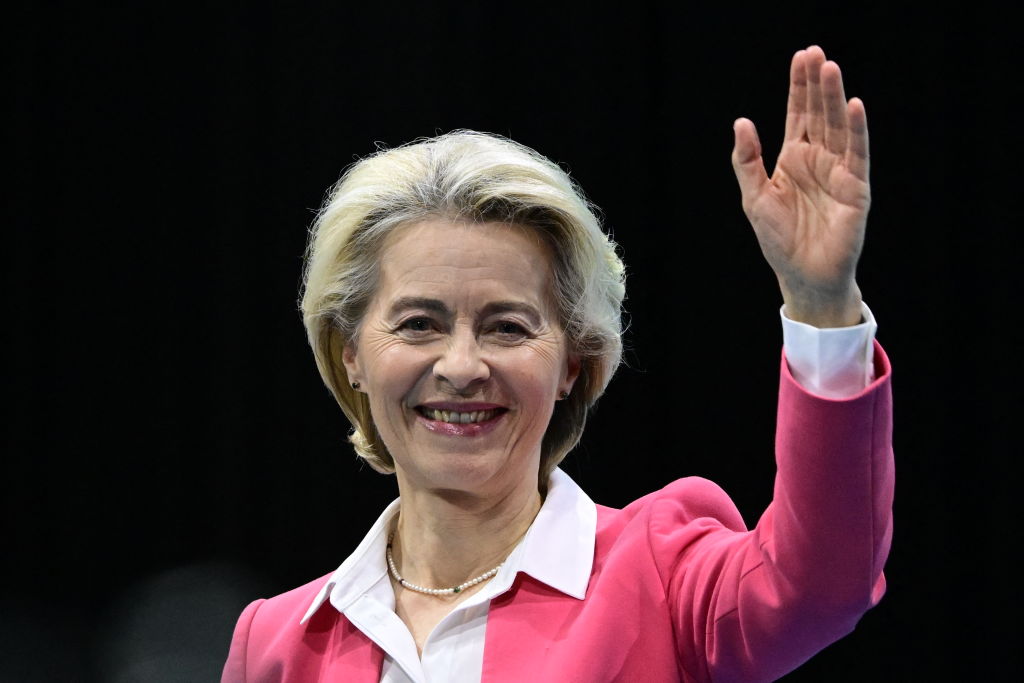With European parliamentary elections approaching in early June, European Commission President Ursula von der Leyen is staking another term in office on her pitch to protect the continent’s security. Speaking at the Copenhagen Democracy Summit on Tuesday, she pledged to create a “European Democracy Shield” if she wins reelection, which will combat “foreign interference and manipulation”.
The battle for control over the narrative being consumed by Europeans is increasingly divisive. The potential for a poisonous political atmosphere to spill out of control may have been illustrated this afternoon, when Slovak Prime Minister Robert Fico was shot outside a government meeting. Von der Leyen condemned the “vile attack” on Fico, saying such acts “undermine democracy, our most precious common good”.
Von der Leyen’s proposed approach to the bitter information war which is shaping EU politics may, however, only deepen divides. Her proposed Democracy Shield would establish a new disinformation unit for the detection and removal of online disinformation while “inoculating” EU citizens against false information through education.
During her speech to announce the initiative, von der Leyen focused on events in her native Germany, claiming that “we have seen far-Right politicians and candidates from the AfD in Germany in the pockets of Russia.” Her comments refer to investigations into Czech-based Russian propaganda website Voice of Europe, from whom AfD politicians are accused of accepting bribes. Von der Leyen has claimed that AfD politicians carry Russian propaganda in Europe “whether they have taken bribes for it or not”.
Though the acceptance of bribes would, if proven, be indefensible, such statements show the potential for von der Leyen’s proposed Democracy Shield to be used against specific political parties. The subjectivity of deciding what constitutes “disinformation” would clearly leave parties outside the mainstream of political opinion deeply vulnerable.
While the AfD causes mainstream consternation in Germany, the influence of the information war on party politics is also in evidence across the border in the Czech Republic. The Czech coalition government recently launched a much-criticised campaign displaying opposition politicians accompanied by slogans expressing their supposed devotion to Russia. This campaign could be described as “disinformation” in its own right — an ironic twist, given that accusations of disinformation levelled at opponents are central to the current government’s messaging.
Regardless of von der Leyen’s personal fitness to stand up for Europe’s security — well-known mishaps during her tenure as Germany’s defence minister would hardly seem propitious — questions must be asked about the intent of her proposed Democracy Shield. In the context of the febrile debates shaping EU politics, further censorship may prove a slippery slope. As recent panicked calls for the AfD in Germany to be banned entirely prove, the leap from censoring opinion in the name of protecting Europeans against “disinformation” to banning entire political parties in an attempt to silence debate may be smaller than some think.










Join the discussion
Join like minded readers that support our journalism by becoming a paid subscriber
To join the discussion in the comments, become a paid subscriber.
Join like minded readers that support our journalism, read unlimited articles and enjoy other subscriber-only benefits.
Subscribe